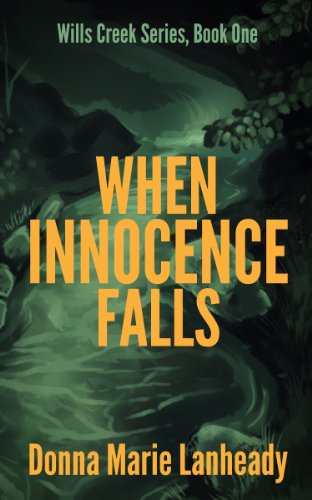an excerpt from
Longclaws
by Steve Peek
Copyright © 2014 by Steve Peek and published here with his permission
ONE
*****
Piedmont, Alabama was just less than one ninety miles west of Atlanta on Highway 6. Back then, its two lanes of asphalt ran through endless pine forests, farms with barn roofs painted red and white with Coca-Cola logos, and small towns composed of one gas station and a barbeque shack.
After Father came home from work, they piled into their family car: a six-year-old 1949 Oldsmobile Futuramic station wagon. Painted hunter green, their car possessed real wood trim around the side windows.
He and his brother sat on blankets in the back, where the third seat had been laid flat to create space for them and the two suitcases. Tom’s sisters—Amanda and Allison—occupied the backseat, with a picnic basket between them.
The basket contained sandwiches and cookies, as well as two of their mother’s green-apple pies that she had made for the new widow in Alabama. Tires in those days were real rubber and produced hypnotic, whining sounds as the car cruised along the highway, causing occasional dogs to give chase.
Their father started the car and enumerated the road-trip rules for the Mason family, which applied only to the Mason kids: no horseplay, no loud talking, no teasing brothers or sisters. They could play games, talk, or tell stories, but in low voices. If they stopped, everyone would go to the bathroom, real bathroom available or not. Their estimated time of arrival was 10:00 p.m. The host family and their guests might all be asleep or ready for bed, so as soon as introductions concluded, the kids were to go to sleep wherever their host placed them.
The Futuramic hummed through the moonless darkness. Boredom settled in, and sleep overtook all the kids except Tom. Tom clipped his Boy Scout flashlight to the neck of his T-shirt and reread the Superman annual comic book for the thirtieth time.
Tom felt the car slow and then turn onto a dirt road packed hard by a summer of little rain. The tires vibrated on short stretches of washboard ruts in the dirt road. Tom sensed the edge of motion sickness, so he put away his comic and sat up to stare out the back window through an accumulating layer of reddish dust.
His brother, Russ, slept at his side. At fourteen—the oldest of the Mason kids—their parents expected Russ to become the surrogate father when adults were absent. Tom never admitted it, but he idolized his brother. Russ was as close to a hero as Tom could imagine. Tom knew he could depend on Russ, no matter what.
Amanda, two years Tom’s senior, was the more feminine of the two sisters. Allison—one year older than her sister and the prettier of the two—preferred mud fights and tree climbing to dolls and frilly dresses. She tried to mother Tom when he hurt himself or fell ill, but Tom would have none of it.
Tom stared out the back window. The taillights cast a scary, red glow behind the car as the tires kicked up dust, which twisted into horizontal dirt-devils streaming from the rear of the car. Beyond the red glow of the taillights, the complete darkness frightened Tom a little.
Tom’s father and mother exchanged words. His mom twisted her body and faced the backseats. “Wake up kids. We are going to be there in a few minutes. Wake up and make yourselves presentable.”
The sisters stirred, emerging from whatever dreams had been born of the bouncy car and the background rhythm of the eight-cylinder engine.
Mother looked past the girls at him and said, “Tom, wake up your brother. We are almost there.”
Knowing they would be at their mysterious destination soon, Tom’s phobia of meeting new people—especially new kids—welled up, feeling like the anxiety of walking to school to face a waiting bully.
Without taking his eyes off the illuminated portion of the road, their father said aloud, as if making an announcement over the school intercom, “I want you on your best behavior. The folks here are good people. They are our relatives. If an adult asks you to do something, do it.”
He cleared his throat and continued, “So mind your Ps and Qs. Oh, and one more thing: last time I visited, they did not have a bathroom in the house; they have an outhouse.”
He paused as if preparing to issue a warning or instruction, thought better, and simply said, “You’ll get used to it. But until you do, no complaining.”
Tom saw some lights up ahead: an island in the dark.
When they turned right onto the track serving as the driveway to the old country house standing fifty yards from the road, Tom looked at the layout. The front yard was not really a yard at all. Once part of a forest, it had been cleared long ago, and now only a few huge pine trees were left, rising over beds of needles. Tall grass grew here and there, but gave way to dirt paths where people had walked between the pines.
Light came from every window. An electrical wire stretched fifty feet from the top of the front porch to the biggest pine tree Tom had ever seen. Six bare bulbs—affixed to the wire—dangled about seven feet above the ground.
In one of the circles of light beneath the wire, folding chairs formed a perimeter. The chairs were occupied by men of all ages. In the center of the group, where a fire might be in fall, sat a large washtub filled with melted ice and bottles of Coca-Cola, RC, and Nehi soda pop. The men stopped talking to study the Masons’ car.
“Hello, stranger,” one of them called, walking toward their car. Their father nearly leapt out of the car and grabbed the man’s extended hand, which quickly pulled them together for a hug.
Russ and Tom climbed out the tailgate and stood alongside the car, watching as a group of twelve or fifteen men and kids approached from the string of light bulbs.
The house looked as if it had never seen a coat of paint. The gray planks warped and strained against the rusty nails, which bled dark-red streaks from years of rain. The steep, tin roof was nearly invisible in the night sky. Where the main metal roof ended, another began. A shallow slope formed a roof for the porch, which ran across the front and left sides of the house.
Underneath the porch roof, bare bulbs with dangling pull-strings cast a yellow glow on all the women sitting in rockers. Conversation halted while they examined the new arrivals.
“This is my cousin, Royce.” Their father indicated the man he’d hugged.
“Hello, Royce,” their mother replied with a smile, adding, “Children, say hello to your cousin Royce.”
The man was tall and thin, but somehow seemed stronger than he looked.
“Hello, ma’am,” he said, offering his hand to their mother.
“Don’t ‘ma’am’ me, I’m your cousin, Christine,” their mother replied, then added, pointing at each of us, “and this is Russ, our oldest, Amanda, Allison, and Tom.”
Royce nodded at each name, and even in the dark, Tom felt the man’s eyes linger on him when his name was called. He was just glad his mother had not added “the baby of our family”.
The tall, lean man said, “Call me Uncle Royce. Your dad always called me that because I was a lot older than he was growing up.”
Others spoke up, and the introductions seemed endless. One of the men said, “Jordan, why don’t you come sit, have a Coke, and let’s all catch up. I guess it’s been six or seven years since we’ve seen you.”
Tom rarely heard anyone call his father by his first name, Jordan. It was always ‘Father’ at home and ‘Mr. Mason’ at the mill.
“Sounds good,” their father said. “Give me a minute to get Christine and the kids settled in the house and I’ll be right down.”
He signaled his wife and kids, and they all moved toward the house.
Some of the women came down from the porch and walked out to meet the Masons. There were more introductions, and some whispered respects paid to Lindsey, the dead man they had come to see buried.
A few kids—ranging from Tom’s age to older than Russ—stood in the background shadows, studying their new relatives from the city, and waiting for the new kids to be released to play.
Tom heard singing coming from inside the house. Two or three female voices, accompanied by a guitar. Tom couldn’t quite make out the words, but he knew it was a hymn.
Not anxious to be released to the outlying kids, Tom—and his little knot of family—moved through the women who had descended the porch steps to welcome them.
A mixture of nervousness, anxiety, and fear caused Tom to keep his eyes glued to his own feet, and he soon found his high-top Converse sneakers at the first weathered step to the front porch. His mother patted his shoulder as she said, “Let’s go in, children.”
Tom listened to the song coming from the house as he took the first step.
“There is pow’r, pow’r, wondrous-workin’ pow’r . . .”
As he took the next step, an unknown fear entered his emotions. He remembered his father had warned him the dead man was inside.
“In the blood of the Lamb . . .”
Tom wanted to be anywhere but here. He didn’t know these people. He didn’t want strange kids asking him questions and laughing at him. He didn’t like these people. They were more different than he expected.
“There’s pow’r in the blood, pow’r in the blood. . .”
Tom reached the actual porch floor, made of old pine boards. His mother gently pushed him forward and to the left. She leaned over and whispered something to him, but the song prevented him hearing.
“There’s wondrous-workin’ pow’r in the blood.”
“Everyone,” his mother said to her children, “meet your great-great-aunt Ruby.”
Tom’s eyes moved from his shoes along the porch’s floorboards until reaching the bottom of a rocking chair and a pair of old-timey-looking, lace-up, women’s ankle boots. Above the boot tops, white, cotton socks peeked out to separate the worn, black leather from a long, front-button, dark-calico dress.
Tom could tell the woman in the rocking chair was thin as a rail. When he saw her skinny, mottled arms and clawed, arthritic hands, he could not stop the thought of an old witch.
Eyes reaching her emaciated chest, the dress seemed nearly empty, as if worn by something less than a full human skeleton. Though the high-neck button of the dress was closed, the collar hung loosely around the creped neck.
The song finished. Silence came from inside the house. The lack of music, the silence coming from the unknown house, terrified Tom more than the lyrics of blood.
As if on their own, his eyes followed their upward path. The mouth, misshapen by missing teeth, smiled at him. Tom wanted nothing more than to turn and run.
His eyes lifted and his heart stopped. He thought he might wet his pants. He knew he shouldn’t; he knew he couldn’t. He would never live it down, but what he saw did not allow him to simply act normally and perform to his mother’s training.
There, in the middle of Great-Great-Aunt Ruby’s face, Tom saw a large, open sore. Purple flesh, with dark-red meat and what looked like a piece of bone just beneath stretched, scarred skin. Great-Great-Aunt Ruby had no nose—just an unimaginable hole in her face.
He had no idea how he looked, standing there frozen in horror, trying desperately not to pee his pants.
The song, the witch with the hole in her face—it was too much. He screamed.
Tom’s mother gripped and pulled his arm, forcing him into the house, past a grandmotherly, white-haired woman who held the screen door open so he and his mother could rush through the living room, a dining room with sawhorses supporting a crude, wooden coffin, and into a small, back bedroom. The white-haired woman followed them into the room and spoke softly to his mother while looking at Tom with a mix of sympathy and embarrassment.
His mother held him until he stopped crying. He finally told her he had to go to the bathroom. She looked around the room, then found and brought him a porcelain pot with a lid and told him to pee in it. He stood in a corner, peed in the pot, put the lid back on, and then—not knowing what else to do—offered it back to his mother.
Time passed. The house became silent except for a few voices and the occasional scraping of a chair in the kitchen. His mother had not been angry with him. He knew he had embarrassed himself, his parents, and his siblings. Tom had no idea how he would face the shadow kids who had witnessed his disastrous breakdown. Sick with anxiety, the total experience of the trip caught up with him and he fell asleep.
An overweight, orange cat, in hot pursuit of vermin, used Tom’s chest as a springboard to leap toward its prey. Tom woke with a start and found himself in a barn.
He lay on a pallet of quilts and straw. The barn loft seemed filled with kids of all shapes and sizes, undisturbed by the chickens clucking and pecking on the ground beyond the barn’s wall.
He rubbed his eyes to clear the sleep and remembered screaming at his great-great-aunt’s lack of a nose. The sleeping kids had seen it. He was humiliated.
One of the kids—the biggest one—stirred. Tom moved quickly. He didn’t want to suffer the torment these kids would dish out with their taunts and silence. He found the ladder and scurried down from the barn’s loft. Through the wide-open doors he saw chickens spread between the barn and the house, pecking a breakfast of previously missed feed and any insect foolish enough to be out as the sun rose.
An unseen rooster crowed. The loud call stopped Tom in his tracks.
He heard the kids waking in the loft, and scooted around the barn to find a place to pee.
The breeze shifted and Tom smelled bacon frying. He saw women moving past the window in the farmhouse’s kitchen.
The kids were scrambling down the ladder in the barn.
He heard a pubescent voice crack as it shouted, “I’m gonna jump! Y’all watch this.”
“You’ll break your country neck,” Russ said, adding, “and I won’t have anyone to show me the Indian burial ground.”
“Oh, all right, you sissified city boy,” the pubescent voice relented. “And it ain’t no Injun burial ground; it’s a burial mound.”
“Well, come on,” Russ replied. “Let’s eat and get going. I want to find some arrowheads.”
Tom stepped behind a juniper tree as the kids exited the barn, running toward the house.
Tom stood, knowing what he had to do. He couldn’t avoid contact all day. Besides, if arrowheads might be found, he wanted in on it. Reluctantly, he walked toward the house.
Tom sheepishly entered the kitchen, where kids lined up for plates heaped with eggs, bacon, sausage, grits, and biscuits.
Russ watched Tom enter but said nothing. Tom took his place in the back of the line, the smells making him very hungry.
No one said anything to him until he stood on the side porch, his plate and fruit jar filled with cold milk on the rail. Russ stood between him and the big kid, who continuously talked about Indian legends and local history as if an expert.
He finally poked his thumb toward Tom as the fork in his hand scooped back into the grits. “I don’t know if your little brother ought to go. Screams might piss-off them Injun spirits and curse us with bad luck,” he said, then shoveled the forkful of grits into his mouth and went for another.
Tom’s face flared red. He had been prepared to be the butt of jokes, but he was not going to miss a trip to search for arrowheads and pieces of peace pipes. He thought a minute before asking in a soft voice, “Do you know what tribe made the arrowheads?”
Caught off guard, the bigger kid—self-proclaimed expert and curator of the outdoor museum known locally as Five Stones Mound—said, sounding self-assured, “Cherokee. What’s the difference?”
“Oh.” Tom feigned disappointment. “Choctaw or Chickasaw might be worth more money.”
Russ studied his brother, relieved Tom had found a way to go on the arrowhead expedition without him having to intervene with the bigger boy.
“Who’d pay for Injun arrerheads?” The big kid hawed, unsure of the truth of the statement.
“A lot of colleges and museums,” Tom said, “if they are in good shape. But you can’t get much if they are Cherokee. You have to know the difference.”
“How do you know so much about Injuns, anyway?” the big kid asked.
Russ answered for his brother. “Tom brings home library books about Indians all the time. He’s no expert, but he knows some stuff.”
“Tom? Is that your name? Well I guess you’re alright. You can come along with us. We might need you to tell us if the arrerheads are Cherokee or not.” The big kid added, “My name is Harlan, but anybody who wants to keep his eyes open calls me Harley.”
An hour later, a small expedition of children walked half a mile down the dirt road in front of the house before turning onto a deer trail through the thick woods.
The climb was longer and harder than Tom expected, but finally they reached a spot where Tom could see a clearing on top of the hill.
The clearing atop the Indian burial mound formed a perfect oval in the dense pine forest. An earthen hump rose two feet above the surrounding ground, forming a short plateau.
Eyes fixed on a formation of standing stones on the mound, Tom did not notice the perfection of the shape, or that all the trees around the clearing leaned slightly toward its center. Mesmerized, excited, and a little fearful, Tom Mason moved toward the stones.
The stones stood centered on the grassy plateau. The center stone, looking like an old man’s scarred, knobby finger, jabbed skyward twelve feet. Near its speckled, granite top, a white-quartz vein sliced a six-inch-wide lightning bolt that vanished into the ground. Four smaller stones—ranging from six to eight feet in height—surrounded the central stone at the cardinal points. Though laced with quartz, they lacked the center stone’s unnerving quality.
Careful not to touch them, Tom moved among the stones in intense fascination.
The other kids, sensing something about to happen, watched quietly as Tom reached out a hand to touch the quartz swath on the center stone.
Held high above his head, his hand crept toward the stone. He did not know why he did this, only that he needed to.
His face, bare inches from the stone’s gray surface, became tranquil. His hand closed the final gap.
Tom’s fingertips, finally, gently, touched the milky quartz.
Nothing happened.
He leaned against the standing stone, his face pressed against the cool surface. For a moment, the forest fell utterly silent.
“Are we gonna hunt for arrerheads or hug rocks?” Cousin Harley brayed, breaking the spell that held them silent.
Tom’s brother Russ laughed and asked where to start searching. Harley said, “Come on, I’ll show you,” and led them down the mound’s east slope to what he claimed used to be an Indian campsite.
Tom brought up the rear. Nothing had happened. He had expected something. He did not know what, but something. He’d been drawn to the stone, but there was nothing other than an eight-year-old’s disappointment.
Harley’s sister, Irene, moved faster to keep up with the older boys. Tom didn’t worry when she disappeared around a bend in the trail. He heard Harley exaggerating a mile a minute about past adventures in the woods.
Tom caught up with them at the bottom of the hill. Russ cast an annoyed ‘hurry-up’ glance in his brother’s direction. A few yards farther, they reached a pond with a sandy bottom.
Four underground springs pumped glass-clear cold water, roiling the sand at the bottom of the small pond. The overflow brimmed and flowed away at the southeast edge.
“Medicine Pond,” Harley said authoritatively. “The Indians camped here while they built the burial mound.”
“How come everything is named medicine this and medicine that?” Russ asked suspiciously.
“Indian name,” Harley answered quickly, adding. “Guess they liked medicine.” Changing the subject, he added, “Just dig around the edge of the pond. Find a good stick and kind of plow it up. Sometimes you find stuff, sometimes you don’t.”
Harley found a sturdy stick and began scratching the soil. The other kids followed suit, scraping dirt along the pond’s shore.
A little tired and nauseous, Tom moved with less enthusiasm. A half-hour later, he had circled the pond without uncovering anything worthwhile. Neither had the others, though Russ twice thought he had found arrowheads that turned out to be ordinary rocks.
Tom had never seen water this clear. Watercress grew along the shore, floating around the pond’s perimeter. He halfheartedly chased a salamander.
The others, intent on discovery, huddled together, scraping dirt like berserk archaeologists.
Tom thought about the standing stones. From above they would form a cross. His gaze wandered back to the trail leading to the top of Medicine Mound.
A few yards up the trail, before vanishing into a sharp turn, two boulders formed a natural channel for rain runoff. Tom observed exposed roots in the eroded area between the rocks. Maybe arrowheads had washed down from above and accumulated at the hill’s bottom.
Within moments, he scratched the ground with renewed interest.
The point of his stick turned up small stones and thumped against shallow pine roots. He was about to give up when the point glided over a larger stone.
He scraped the area carefully, discovering a streak of grayish-white rock beneath the soil. Working carefully, he uncovered enough to expose cracks across it. Tom put his stick down to clear the stone with his hands, thinking he had found an Indian pot.
The instant he touched the cold, smooth surface, a sudden feeling of lightheadedness rebooted his earlier nausea. It passed quickly, though, and he continued removing the soil around the stone.
The others had abandoned their archeological expedition to explore the creek flowing from the pond. On the other side of the clear water, they moved away, with Harley loudly explaining something about the waters being healing.
Tom worked painstakingly. In minutes, he reached under and pried the stone loose. He no longer thought it was a pot, but figured since he had worked this long, he might as well pull it out, if only to plop it into the pond.
Lifting gently, he freed it from the grabbing soil. Turning the object over, Tom’s jaw fell open and he dropped the skull, screaming, “Russ! Russ! Come quick, come quick!”
The other kids, Russ in the lead, crested the rise in an instant.
Tom stood motionless, pointing to the skull on the ground. Russ and the others stopped short the instant they recognized a human skull.
“Jeezum squeezum!” Harley whistled. “An Injun skeleton’s head. Holy roly! Let’s see if there’s any more bones.” He knelt down by the small hole. “Which way was he facing?”
No one had touched the skull, which stared skyward, its eyes and nose cavities plugged with clay.
“It was facedown, like this.” Tom showed where the base of the skull had been.
Russ, Harley, and Irene started digging.
“Careful so we don’t break nothin’,” Harley ordered as they worked quickly. Seeing Tom wasn’t digging, he said, “Take that skeleton head to the pond and wash it out, Little Bit.”
“Uhn uh,” Tom said, shaking his head firmly, keeping an eye on Harley’s reaction.
Russ gave his brother a disgusted yet somehow sympathetic glance. “I’ll do it. Tom, you help dig.”
Tom knelt down, tentatively scraping dirt from the area where the skeleton’s chest should be.
Russ picked up the skull, holding the coolly gruesome item away from him as if it might bite, even without a lower jaw. He hurried to the pond and swished the skull through the water. As the dirt came away, he scraped plugs of clay from the skull’s cavities.
“This guy sure had some big nose and eyeholes,” he called.
“All the better to see you with!” Harley chuckled, digging busily.
Harley found the missing jaw and sent Irene to wash it. She took it and went to join Russ, who was still working the dirt out from the skull’s eyes and nose sockets.
Swishing the bone through the water, she called, “Hey Harley, this ain’t got no teeth.”
“Injuns didn’t brush their teeth, everybody knows that. They probably rotted out from old age,” her brother answered without looking away from his excited digging.
“Hey, there’s none here either,” Russ said, noticing the absence of teeth in the skull he held.
They found some pieces of backbone that Harley deemed of no value. He shifted to digging where the right arm should have been, saying, “I want me a hand bone.”
Tom dug. His head began to ache; his heart beat a little too fast. Like at the stones on top of Medicine Mound, Tom felt something was about to happen.
Tom used a short stick to scrape dirt with one hand, and pulled dirt away with the other. He was deep enough to have found ribs or something.
Russ came back, holding the wet skull. Completely at ease, he placed it on a rock so it looked at the group.
Harley lifted his eyes, gave an approving grunt, and kept digging.
Tom found the remains of two ribs, but didn’t mention the discovery. A moment later, something black appeared in his hole. Gently, he worked to free it.
“Jeezum squeezum.” Harley jumped to his feet, holding his own discovery. “I found me a bone knife.”
Russ and Irene eyed the curved, nine-inch blade: a serrated edge on the underside, a thick, strong, rounded ridge above.
“I’ll bet they skinned hides with this,” Harley said excitedly, holding it like a dagger, thrusting at imaginary foes.
“Hot dog!” Tom stood, brushing dirt away with one hand while the other held a near-perfect, eight-inch-long flint spearhead.
Russ and Harley turned toward Tom. Seeing his treasure, they gathered around the hand holding the artifact.
“Dang, that’s a good one!” Harley said enviously, his knife no match for the spearpoint’s sheer beauty.
“Let’s wash it off,” Russ suggested, implying joint ownership.
Tom led the way to the pond and cleaned the museum-quality spearhead.
“Let me hold it,” Harley said.
Tom—concerned about him breaking it, or worse, not giving it back—held it out.
“I want to see it next.” Russ said, and at once relieved Tom of the fear of losing ownership of the remarkable find.
While Russ took his turn gripping it at the notch and thrusting it with his arm, a realization stabbed its way into Tom’s thoughts. This spearhead had killed the person buried in the shallow grave. The uneasy feeling swiftly changed to feelings of excitement and joy when he realized how perfect the worked flint was. Now, thinking about a dead man reminded him that his parents had made this trip to attend a funeral. A real dead man lay in a casket in the house. He felt sickened. Weak-kneed, he sat.
Russ took the stone spear tip from Irene and handed it to Tom. They hiked back to the farmhouse, where the dead man lay waiting to be lowered into the earth the next morning.
There was no moon that night. Some men at the wake built a fire outside, and children huddled near the circle of safety. Tom watched nervously as the spearhead passed from one to the next, each man making quiet comments about things ancient.
Finally, his dad’s cousin Royce Mason took the artifact. The lean man’s pale eyes had studied Tom off and on all night, but now they focused on the crafted flint. Royce closed his eyes for a second, and Tom thought pain twitched across the man’s gaunt face.
Looking back at Tom, Royce reached to return the artifact to the boy. “Real piece of work, Tom. A special find.” He smiled.
Royce placed the beautiful spearhead in the boy’s hand, then cupped it with his own. “Take good care of it, Tom. It’s very special.”
Something about the man’s touch made Tom’s hands tingle, goose bumps flashed, and the fine hairs on his arm rose. Feeling slightly dizzy, Tom sat cross-legged and stared into the fire.
An old, spotted, scarred-eared hound cautiously joined the circle of humans. He sniffed the ground, made two tight circles, and sat next to Tom.
Tom’s mind filled with fragments of images, as if daydreaming but not quite able to complete the pictures. He rubbed his eyes hard; his low-grade headache worsened. When he opened his eyes, Royce Mason was studying him again.
The men spoke softly and respectfully about the Indians who had roamed this land a thousand years before.
Royce joined in, “I don’t think Chickasaw or Alabama built the mounds. And I’m not so sure they are only burial mounds.”
Royce’s eyes locked on Tom’s. “I think Indians who lived here long before the Chickasaw made the mounds.”
Images formed in Tom’s head. The scene across from him wavered and Royce’s voice faded. Something in Tom’s world shifted. He reached his hand out and touched the dog’s head.
TWO
North America, 20,000 BC
The dog sitting next to the boy nudged the hand on his head to scratch harder. Steady Hand sat near the campfire, legs crossed, a hide on his shoulders, hand resting gently on the dog’s head.
The old shaman finished praying and leaned forward. Flames reflected in his clear eyes as he began his tale. The young children stared at the strawberry birthmark on his forehead. At fifty winters, he was the oldest of the tribe.
He raised his arms, hands open, palms out for complete attention. Tonight was special. Steady Hand had entered his thirteenth year. Tomorrow he went with the warriors on the first spring hunt. Steady Hand had hunted before, to learn, but tomorrow he would make his first kill as a Ani Yun Wiya warrior. Tonight he sat with the tribe’s children for the last time. Tomorrow he would be a man.
Red Crawfish began his tale, speaking words supplemented with sign language.
“We are Ani Yun Wiya, the Real People. We live in the world for us. After we die, our spirits go to other worlds. Which world is decided by how we lived.
“If a man hunts well, has many sons, says the truth, that man’s spirit goes to the world where elk, rabbit, and fish live without number, where corn grows tall, and it is always spring. If a man says lies, steals, or beats women for no reason, his spirit goes to the Place that Rains Fire.
“When a man dies, his spirit travels to The Crow Place, where birds counsel about the good and bad of the man’s life. They decide into what world the spirit goes. They call The Black Snake that Climbs Trees to guide the spirit to its new home.
“This is the story of Stone Giver who, so long ago the winters cannot be counted, went to a spirit land and returned to his tribe to tell the story of the Thunder Beings. Stone Giver was the bravest warrior of the Ani Yun Wiya. When the full moon came in winter, the most dangerous time to guard sacred places, Stone Giver volunteered to go on the Walk Alone to the tribe’s boundaries. One winter, on the Walk Alone, he went too far and became lost.
“He traveled many days looking for a landmark. Stone Giver had to sleep when he came to The Crow Place. The crows saw Stone Giver. Thinking he was a spirit come for judgment, the crows began to argue his life. They decided. The Black Snake came from its hole and led Stone Giver to the highest place. The Thunder Beings came from the sky. They put Stone Giver in the thunder and sent him to the Place That Rains Fire.
“‘This is wrong,’ said Stone Giver. ‘I have made many kills. I have seven sons. I do not beat women, I never stole, and I always say the truth. I should not be in this place.’ Angry, he flung his spear into the clouds.
“He waited for a day and a night, hiding in a cave from the monster warriors of The Place That Rains Fire. The next morning, his spear fell from the heavens and stuck in the ground in front of his cave.
“A Thunder Being said, ‘Stone Giver, you should not be here. You are not a spirit. You are still Ani Yun Wiya, and should be in that world. Because we made a mistake, we will send you back. Tell your people the Thunder Beings made a sky bridge between worlds so you could come home. Because we made this bridge, creatures from The Place That Rains Fire may someday come to your world. To help the Ani Yun Wiya keep their world, we send a magic gift. Now come out of the cave, take your spear, and go home.’
“Stone Giver came out and pulled his spear free from the earth. The thick shaft had a beautiful, black, stone point and a small skin bag containing a piece of crystal tied to the shaft.
“A swirling cloud-tunnel opened in the air and swallowed him. In no time, he fell to the ground at one of the Ani Yun Wiya’s stone boundary markers, and the tunnel vanished.
“A Thunder Being spoke. ‘The stone point will help Ani Yun Wiya hunt better. We gave you wisdom to shape the stone. The crystal in the bag helps to find your way to the sacred places. The most important gift is this: Thunder Beings admit when they are wrong and make things right; the Ani Yun Wiya must do the same. Now go and tell your people what has happened.’”
Red Crawfish looked at the children. This story always made them chatter with questions. He held up his hands for silence. “Your questions must wait. Tonight is special; it is the last night Steady Hand sits at the council of children. Tomorrow he becomes a warrior.”
The shaman clapped his hands three times, keeping his smiling eyes on Steady Hand. He liked this boy. Red Crawfish gleaned quickness and intelligence from the boy’s eyes. He never chattered like many others. Steady Hand would make a great warrior; someday he might even be chief.
A slender young woman stepped into the circle of light. Her name was Mulberry Place, Steady Hand’s older sister and only sibling. Mulberry Place carried a long object bundled in skin.
Red Crawfish said, “Stand by the fire, Steady Hand.”
The boy stepped toward the glowing campfire. The dog followed and sat beside him. The other children’s envious eyes stayed on him, but Steady Hand watched his sister.
Her husband had fallen into the river and died from chest sickness last fall. Though mates for only two months, she mourned his death.
Mulberry Place offered the bundle to Red Crawfish on open hands. Chanting magic words, the shaman removed the wrapping with ceremony. He took the spear from the bundle. Its shaft was solid and straight, but Steady Hand’s eyes lit with joy when he saw the spearpoint.
The black flint glinted in the firelight. It was perfect. Steady Hand had never seen a more beautiful piece of work.
The boy’s expression pleased Red Crawfish. This spear was the finest ceremonial spear he had ever made. He did not want to consider he had made it better because he liked Steady Hand more than other children.
Held straight, point toward the sky, Red Crawfish passed it over the fire. “Steady Hand, take this spear. It is the grandson of Stone Giver’s spear. Tomorrow, when you make your first kill as a warrior, the spear will become yours.”
The boy reached out and gripped the shaft. His eyes admired the point then lowered to meet Red Crawfish’s gaze.
The old man solemnly released the spear.
Steady Hand raised the spear above his head. He shook it and howled into the night. The dog threw back its head and howled with the boy. Red Crawfish smiled.
Heavy frost blanketed the ground when the hunting party left the pole lodges in the gray hour before sunrise. Steady Hand—the only warrior initiated this spring—ran in the center of the column.
Steady Hand carried two spears—the beautiful one to make the kill, and the spear his father helped make with its crude but effective bone tip.
They reached a peaceful, brook-fed lake at the foot of an escarpment. Holly shrubs, favorites of deer and elk, grew along the granite wall by the stream.
Steady Hand was lucky. A stag and four pregnant elk casually worked their way toward the hunters. They chewed branches, unaware men waited. The elk moved beyond the first hunters, who charged across the creek shouting hunting cries.
The elk bolted into the stream. The screaming men banged spear shafts together, driving the panicked animals.
The big stag headed for the lake. The does followed.
Steady Hand readied. As the elk passed ten feet away, he hurled his spear. Hundreds of hours of practice paid off. The animal stumbled as the bone tip sank behind the animal’s left shoulder.
Before it recovered, three more spears penetrated its body. The great elk fell. The females went into the water, snorting and swimming for their lives.
Normally the hunters would have killed a female, allowing the proud stag to live to impregnate others, but today’s hunt was Steady Hand’s initiation. The small spring antlers would make a memorable prize.
Fallen, kicking weakly, the stag vainly tried to rise. Warriors circled, waiting for their newest member to finish the kill. Steady Hand stepped forward, the ceremonial spear held in both hands, shaft poised over his shoulder.
This moment Steady Hand became a man. At the instant the spear came down, he screamed his warrior’s cry, the call that was his alone for the rest of his life. He had worried over what it should be.
Finally plunging the spear into the animal’s heart, he howled, wolf-like, ending in three barks.
The warriors gathered around the boy, patting him on the back. The warriors prayed over the kill before they skinned and quartered the animal to carry it to the village. Steady Hand could not wait to return and tell about his kill.
The whole village came out to greet them. Children listened with envy as Steady Hand retold the story of his kill, elaborating the danger as he held aloft the narrow rack of horns.
They feasted that night. Red Crawfish presented Steady Hand with a small leather bag containing a piece of polished quartz to help him find his way when far from home. Steady Hand saw how Mulberry Place watched him proudly as he passed into the first phase of tribal manhood.
The second phase would come next spring when Steady Hand made his first Walk Alone, checking sacred sites for signs of longclaws.
Later—in his family’s lodge, with everyone else asleep—the young warrior thought about his sister’s happiness. If Mulberry Place did not remarry by spring, the leaders would choose her new mate. He understood the necessity, but wanted his sister to be happy, and Red Crawfish might pick anyone for her new mate.
When spring came, Steady Hand prepared for his first Walk Alone. Mulberry Place presented him with a gift. She had worked the skin from his first kill into a supple, hooded cloak. She had used bone and lashings. She made it so the antlers could be affixed to the back of the hood.
Steady Hand was thrilled. He put the cloak on and brought the hood over his head. Made from the elk’s head, the hood’s front covered the top part of Steady Hand’s face. Steady Hand looked through the large eyeholes as his sister tied the antler rack so that from the front they appeared to grow from his head.
Red Crawfish approved, announcing this was good magic. The elk’s spirit would make Steady Hand’s first Walk Alone a swift one.
With only his two spears and a small pouch of simple tools, Steady Hand walked to the village’s edge, thinking that if he ran the whole way, the trip would take one moon. Already feeling lonely, he turned, and Mulberry Place returned his wave while watching him go into the woods.
As a Ani Yun Wiya warrior, he was not allowed to show the fear he felt. Usually Walk Alones, which sent warriors into the lower ranges of the mountains, were lonely but uneventful. However, sometimes warriors came back with tales of horrible encounters with longclaws. Worse still, sometimes they never returned at all.
This was a bad time of year, but Walk Alones were necessary to provide warnings and gather information vital to the tribe’s survival.
He adjusted the hide bundle, smiled weakly to his sister, and vanished into the woods.
***
A man’s voice interrupted his Uncle Royce. Tom didn’t hear the comment itself, but heard laughter as his vision of the Indian boy with the elk skin and spearpoint faded and vanished. The boy in the vision had the same spearpoint Tom had found earlier.
There had been more to the daydream. A fight—a spear—a boy somehow like him, but not him, a dog. It was horrifying and confusing.
He looked up.
“About bedtime, wouldn’t you say?” Royce held his hand out, offering to help him up.
Taking the strong hand, Tom followed the likable man into the old barn.
Tom hardly slept at all.
***
When everyone else was asleep, Royce sat alone by the dying fire, studying the skull the children had found. It did not take much examination to know the skull was not human.
� THREE
The World That Rains Fire
There was nothing for them between the jetties but death. Even if they could reach the beach below before other larger predators swarmed to the frenzy, they were creatures of the land. The sea offered only death.
Leader had lived too long to allow his clan to walk into disaster. He ordered the clan to move.
Old for his kind, he had survived sixteen years because of his intelligence. Many creatures were more powerful than his kind and could devour a longclaw in a second—if they could catch one.
Catching one was the trick. Leader’s race survived a brutal environment by guile and cunning. With instincts, senses, and abilities precision-honed by disinterested evolution, longclaws were perfect for their niche. Yet even perfection afforded only a tenuous hold for any creature.
Leader was responsible for the clan’s lives, and owned their instant, unquestioning obedience. He became the clan’s leader when a great crawler ate his father. Death by any other means than predator was nonexistent.
Before his father’s body was completely in the creature’s mouth, Leader took command. The clan instantly accepted him: no communication necessary, no time wasted in transition. His mother—the dead leader’s mate, still able to bear young—paired with the Watcher, the member responsible for guarding the rear while the rest focused on hunting or escape. His mate became the new Speaker. His oldest son replaced him as Scout. This all happened within seconds of his father’s death as they fled across a parched, flat valley floor between towering cliffs.
The old leader’s death left the clan with eight members. Six to twelve was good for a clan, but his did not have enough females. More than twelve longclaws attracted too many predators. When a clan grew to twelve members, the leader divided it, creating two clans, each going separate directions. In his lifetime, his clan had split three times, forming new clans with the dead leaders’ sons as clan heads.
The clan hunted. Scout captured a slow-moving, plated creature with venom-injecting fangs and claws. He sliced off the shellback’s head with a killing claw and placed it on flat, open ground in a rock-strewn gorge. The clan could not eat shellbacks’ poisoned meat, but they could eat many animals that fed on shellbacks. They waited anxiously behind rocks, upwind, sniffing for prey and predators.
Watcher dutifully did not sense the area immediately around the dead shellback, but focused on the sky and rocky cliff faces.
Only a few moments passed before Watcher mind-spoke to Leader. “Cave flyers, above, across.”
Leader did not answer, nor did Watcher expect one, as he scanned and sniffed to detect attacks.
Sharp-bills had scented the bait and sniffed eagerly, ready to dart out and pick the shellback’s exposed feet and neck with razor-edged beaks.
The clan waited.
Watcher mind-spoke again. “Cave flyers come.”
Leader cast his eyes upward, seeing a pack of cave flyers gliding toward them. Their wings—taut, tough hide-sheets attached along their sides, arms, and legs—allowed the cliff-cave dwellers to glide, but not gain much altitude. Leader could not tell if they were after the clan, the bait, or the sharp-bills hidden in the rocks.
He waited, observing everything.
The sharp-bills swarmed from hiding, ferociously tearing meat from the dead animal. The cave flyers stayed on course, quickening their descent. They would be among the sharp-bills in seconds. Leader waited.
As the cave flyers swooped past the frantically feeding sharp-bills, each attempted to snatch with one clawed foot while the other sank and re-sank wickedly curved, two-inch, needle-sharp talons into flesh. Some were successful. Others missed or were themselves injured by the sharp-bills’ edged beaks as they scrambled for safety.
The successful cave flyers landed, lustily devouring meals in gulping bites. Their narrow throats swelled with passing food. The less-successful flyers chased sharp-bills on foot.
Leader mind-spoke. “Kill.”
Scout, the two hunters, and Leader sprang from the rocks, darting into the midst of the feeding cave flyers. The three females formed a rough perimeter around the killing party while Watcher stood away, alert for more predators.
A cave flyer, intent on feeding, saw its attacker too late. It leapt, positioning its talons between itself and its assailant, but Leader was too quick. Leader’s left killing claw thrust into the animal’s vulnerable belly. Burying its full nine inches before jerking it across, he sliced through the creature’s vital organs. At the same time, he thrust his right killing claw into the flyer’s face. It hit hard bone, glanced off it, and skidded down, parting flesh like a zipper opening. The dying creature retreated, desperately trying to free itself from the fire in its innards. Leader moved with it, keeping his left claw deep inside. His right claw flashed, cutting cleanly across the victim’s neck. Its head fell back like an opened trunk lid. Leader rode the prey to the ground, heart still pumping, talons reflexively clawing the air. Leader extended and opened his snout, placed it on the exposed throat, and sucked the warm, spurting blood.
In less than a minute, sated, he offered the quivering prey to his mate.
The other hunters also fared well, though his oldest son, Scout, received a nasty wound on the thigh. They formed a perimeter while the females and Watcher drank.
The cave flyers retreated a short distance. Snarling, snapping jaws filled with jagged teeth, leaping, and showing talons, they scampered to safety up the cliff facing.
Another minute and Leader mind-spoke, “Flee.”
The clan ran. Scout took his position at the column’s head, followed by the hunters, then Leader slightly ahead of the females, with Watcher bringing up the rear.
They ran upright on powerful, horse-like legs, each stride covering four feet. Their goat-like hooves, impervious to rough terrain, carried them sure-footedly away, easily outdistancing another group of attacking cave flyers.
The clan did not run blindly. To do so would invite disaster. They were always hunted and always hunting. Complete alertness kept them alive. If for a moment they stopped concentrating on survival, their demise would be swift and merciless. Everything was a predator, no rival species given an instant’s advantage.
The clan of longclaws stopped at a narrow stream that smelled strongly of sulfur. They took long, quick drinks and continued their flight, sensing for trouble with every stride.
They ran along a plateau’s edge. To their right, a terrifying landscape dropped away. Spread between the clan and the horizon, spaced unevenly and intermingled with mesas and jutting, barren rock hills, six volcanoes spewed dirty smoke into the sky, their red glow like demon beacons marking a dead sea.
Always running between or near fields of boulders, they trotted to a temporary lair. Twice Scout signaled trouble, and the clan hid among large, craggy, yellow-crusted rocks, waiting until it was safe to continue.
Reaching a steep hillside and quickly climbing its slanted, loose, shale base, they used powerful hands and arms to pull themselves up the cliff. Precarious, inch-wide ledges provided footing until they gained entrance to a small cave halfway up.
When they started their journey, after the kill, the sun had been three quarters away across its arc. Still above the horizon, its light diffused through dirty clouds, the sun was a pale orb creating a daylong dusk. As they reached the cave, thick storm clouds reduced the sun to a faint, purplish glow, dimmer than the most distant volcano. Their inner eyelids reflexively opened, allowing owl-like, nocturnal eyes perfect night vision.
A crawler—a spider-like creature a foot across—occupied the cave, patiently digging its trap. Scout speared it with a killing claw before climbing through. The clan followed.
The setting sun left the night lit only by lava flows and sporadic, molten eruptions in the distance. An unseen moon journeyed across the sky behind lightning-laced clouds. Just enough light entered the cave to keep it from total blackness. The clan members were creatures of the dark. The brightest days wore a twilight quality. Evolution provided large, nocturnal eyes, with large, slit pupils like a cat covering most of the exposed surface.
Watcher squatted at the cave’s entrance, sniffing and watching for any hint of attackers. The rest of the clan formed a circle.
“Mind-speak to others,” Leader ordered.
Crouched in a circle, they linked minds and let Speaker’s thoughts become their own. Soon they were engaged in the sunset mind-speak with other clans.
Less than twenty miles away, the Clan of Red Mountain told of a skirmish with howlers. Both species lost heavily, but the carnage ended with the appearance of a great flyer. The most feared predator, great flyers were enormous creatures so powerful only another of its kind could kill it. Usually they sought larger food than longclaws or howlers, but for the two species to draw attention to themselves in open combat was rare.
The Clan of Deep River joined the linking of thoughts with a strong message. A mass pursued them toward the great plateau. They ran at an angle, hoping to move beyond the mass’s left flank before reaching the precipice.
Leader knew their plight. He spoke to his own clan and they broke the mind link. They scampered out of the cave to avoid sharing the fate that might befall the Clan of Deep River.
Feeling the flow of the energy lines crisscrossing the planet, Leader moved south, hoping to move below the westward-moving mass.
The mass consisted of billions of insect-like creatures. A foot in length, each wielded oversized, powerful mandibles, two sharp, crab-like claws, and a barbed, poisonous, whip-like tail. Every few years, colonies hatched billions of eggs, then emerged from underground hives. They joined forces, creating a carpet of death miles across. No living thing stood against them. Relentlessly scrambling over, around, up, or down obstacles in a solid sheet of murderous clacking, they trapped creatures that killed thousands of them before succumbing to smothering torture as the mass covered and devoured it.
Leader set a fast pace. After several miles, the escarpment sloped downward, eventually melding with a vast plain. Leader located a narrow crevice in the escarpment’s face and moved his clan to shelter for a brief rest.
Scout began to limp. The ugly wound inflicted by the cave flyer’s claws had festered. His normally light-gray skin had turned blackish purple around the ragged gash. Scout caught Leader examining his leg. Their eyes met. Scout blinked his big eyes, but neither spoke. They knew if the wound worsened, Scout would leave the clan to avoid attracting predators with the scent of infection. Gnat-sized insects already buzzed around the seeping gash.
After resting, they trotted eastward, following a line of power to a tangled forest of wicked thorn trees. They caught a saw-jaw, a four-foot reptile with thousand-toothed jaws. After draining its blood, they used its body to lure a family of tusks out from the thicket. The clan killed two animals, each twice the size of a longclaw. The others snorted angrily from the cover of impenetrable thorns as the clan sucked blood from the beasts’ throats.
They followed the same energy path eastward, skirting the forest. A few hundred yards from their last kill, Watcher mind-spoke of a group of smallish flyers passing over from the north. They seemed to be zeroing in on the two corpses left beside the thorn tangles.
Flyers came in all shapes and sizes, from no larger than a longclaw’s hand to those like the one attracted to the battle between the longclaws and pack of howlers. So large its beating wings drove the clouds, its claws able to encompass and lift creatures twenty times larger than a longclaw. The great flyers flew alone, high above the clouds, feeding on smaller flyers. Smaller varieties flocked together: the smaller the flyer, the larger the flock. Some were flying reptiles, others nightmare gargoyles: they all dropped soundlessly through the clouds hoping to catch unwary prey. Some hovered above cave entrances to snatch the heads of cave flyers or other animals foolish enough to come out. Feared and respected, their ability to fly was a huge advantage, especially on days when clouds were low and they skimmed only yards above the surface, looking for food.
Leader increased the pace as the clan turned north.
They traveled a dozen miles before seeing bodies of the mass littered as far as they could see. Gassy tendrils steamed from each corpse as digestive acids ate through decaying stomachs. These mindless creatures starved to death on their march. Eventually millions died because they were so far to the rear no food lasted long enough for them to reach. When the mass dwindled, the survivors burrowed, forming colonies until the next time. It would be days before this mass burrowed.
With no food left in the mass’s wake, Leader ordered the clan to backtrack, then headed for a favorite hunting area. They fed three times before stopping in a high cave to mind-speak with other clans at sunset.
Scout’s leg was bad. A thick, milky pus oozed from the torn flesh when squeezed. Leader mind-spoke, “Squeeze poison out, sun rise, leg good, clan go toward Path of Two Hands.”
Scout’s eyes darted from Leader’s. If his leg was not better by sunrise, Leader had told him the clan’s destination so he could follow, but he could no longer threaten them with his presence.
They headed to a place where six lines of power crossed, a dangerous place for creatures that used the energy paths for reckoning. The conjunction of the lines of power often caused dizziness and disorientation, often attracting sick or wounded creatures, making them easy prey. It was called Path of Two Hands because longclaws’ hands each had three fingers; therefore, both hands equaled the number of bisecting lines of power. A longclaw’s hand had an opposing thumb, an index finger, and a finger nearly as long where a human’s little finger would be. Between, where the ring and middle finger would occupy a human hand, was a large knuckle. A killing claw, with a dozen or so growth rings at its base, grew from the knuckle. The lethal appendage was eight to nine inches of bone-hard, ivory-like substance that gently curved into a wicked point. Though rounded for strength at the top, the underside tapered wedge-like to a fine, serrated cutting edge, which, like flint, self-sharpened as old growth fell away and was replaced by a new edge.
Speaker could not function for the Sunset Mind-Speak with Others. Her pregnancy was full term and she would deliver very soon. Watcher’s mate easily filled her role. The clan gathered and listened.
The Clan of Brown Rain had been decimated, five of eight killed in attacks by two separate howler packs. Three survivors lived only because the howlers turned to fight predators drawn to the fray.
This news caused concern. Howlers were an intelligent species. Though inferior to longclaws in brainpower, their natural packing instincts made them fearsome enemies. Unlike many creatures that lived and hunted together, the howlers devised strategies and cooperated, making them extremely dangerous.
Howlers knew there was prey less dangerous than longclaws, and it was rare for the rival species to meet in combat. At least it had been. In two days, there had been three attacks. The howlers’ activity always reached maniacal levels when the sallow full moon sailed on visibility’s edge behind constant clouds. It was during these times, if at all, a pack—running flat out, howling into the night—sometimes stumbled into a fight with longclaws. Lately, something had caused howlers to aggressively attack at every encounter.
The clan stayed in the cave half an hour before moving twenty miles to another shelter. There, Leader’s mate gave birth to twins: a mal
 – Learn More
– Learn More
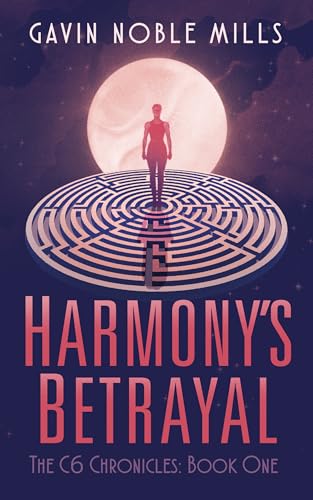
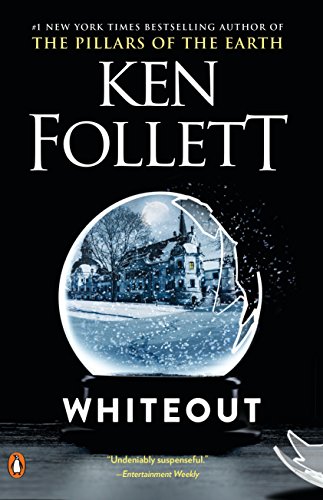


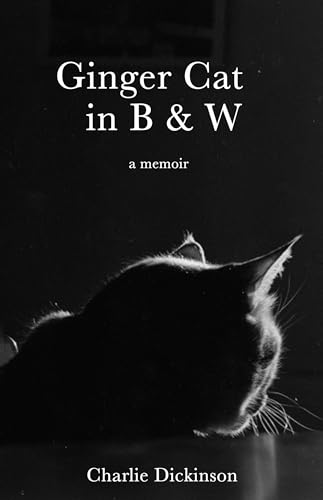
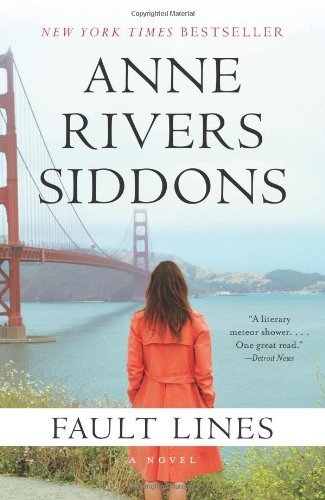
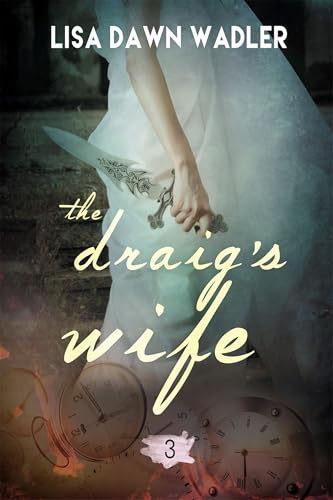
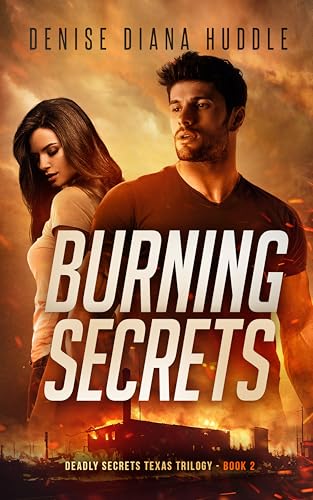
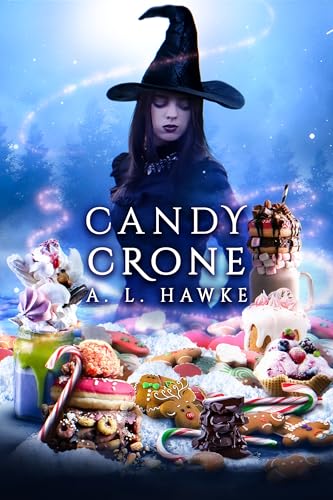
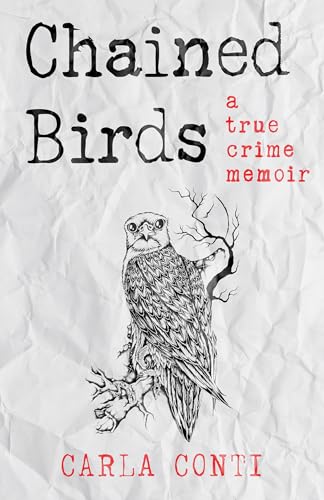
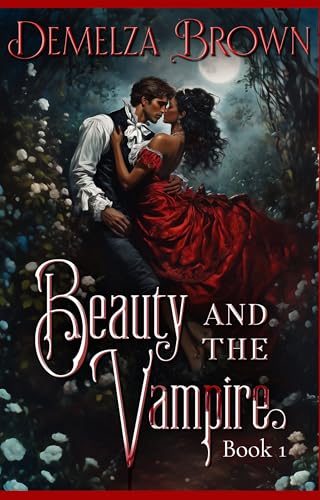
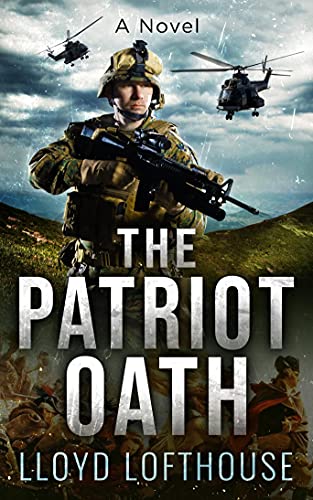


![The SEEING: $1.99 HAPPY HOLIDAYS SALE $1.99 Normally $4.99 by [Peek, Steve]](https://images-na.ssl-images-amazon.com/images/I/41I1T15oiOL.jpg)






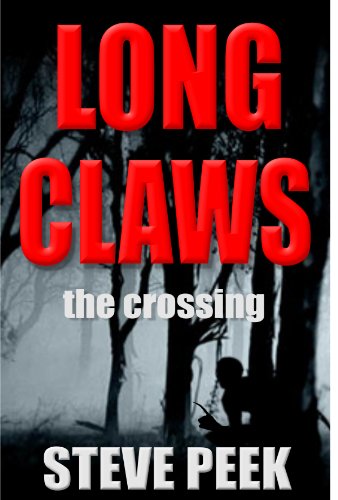
 Steve has only recently seriously taken to writing. Though he wrote and managed to have a couple of books published during his life, something clicked a few years ago and now, for better or worse, he sits at his table researching and writing about things that interest him.
His wife, Annie takes care of him. She keeps him eating too well and laughing often in their old farmhouse halfway up the Blue Ridge Mountains.
Steve's forty year career in the game industry allowed him to travel extensively and explore histories and myths of peoples and places.
Steve has only recently seriously taken to writing. Though he wrote and managed to have a couple of books published during his life, something clicked a few years ago and now, for better or worse, he sits at his table researching and writing about things that interest him.
His wife, Annie takes care of him. She keeps him eating too well and laughing often in their old farmhouse halfway up the Blue Ridge Mountains.
Steve's forty year career in the game industry allowed him to travel extensively and explore histories and myths of peoples and places.



